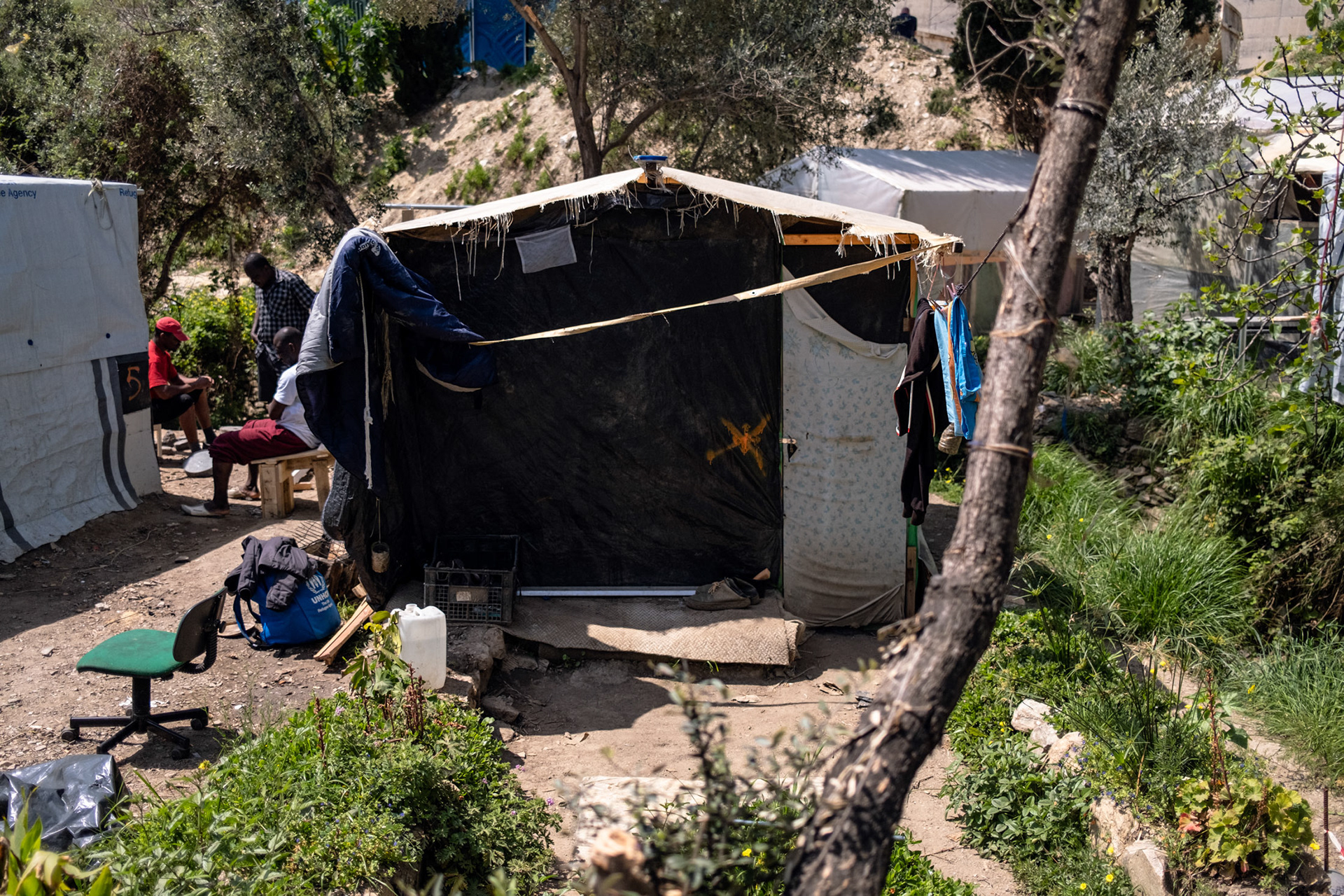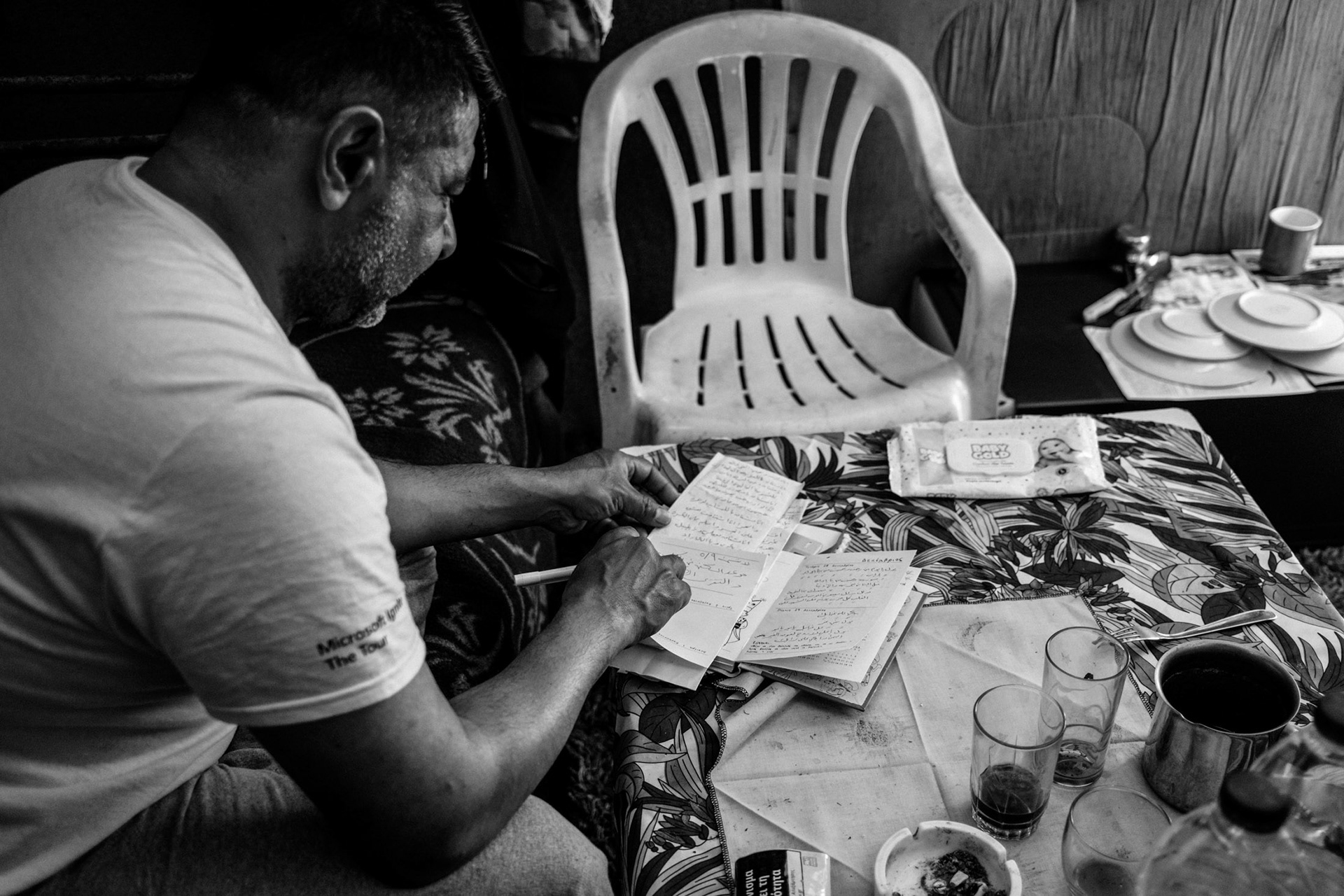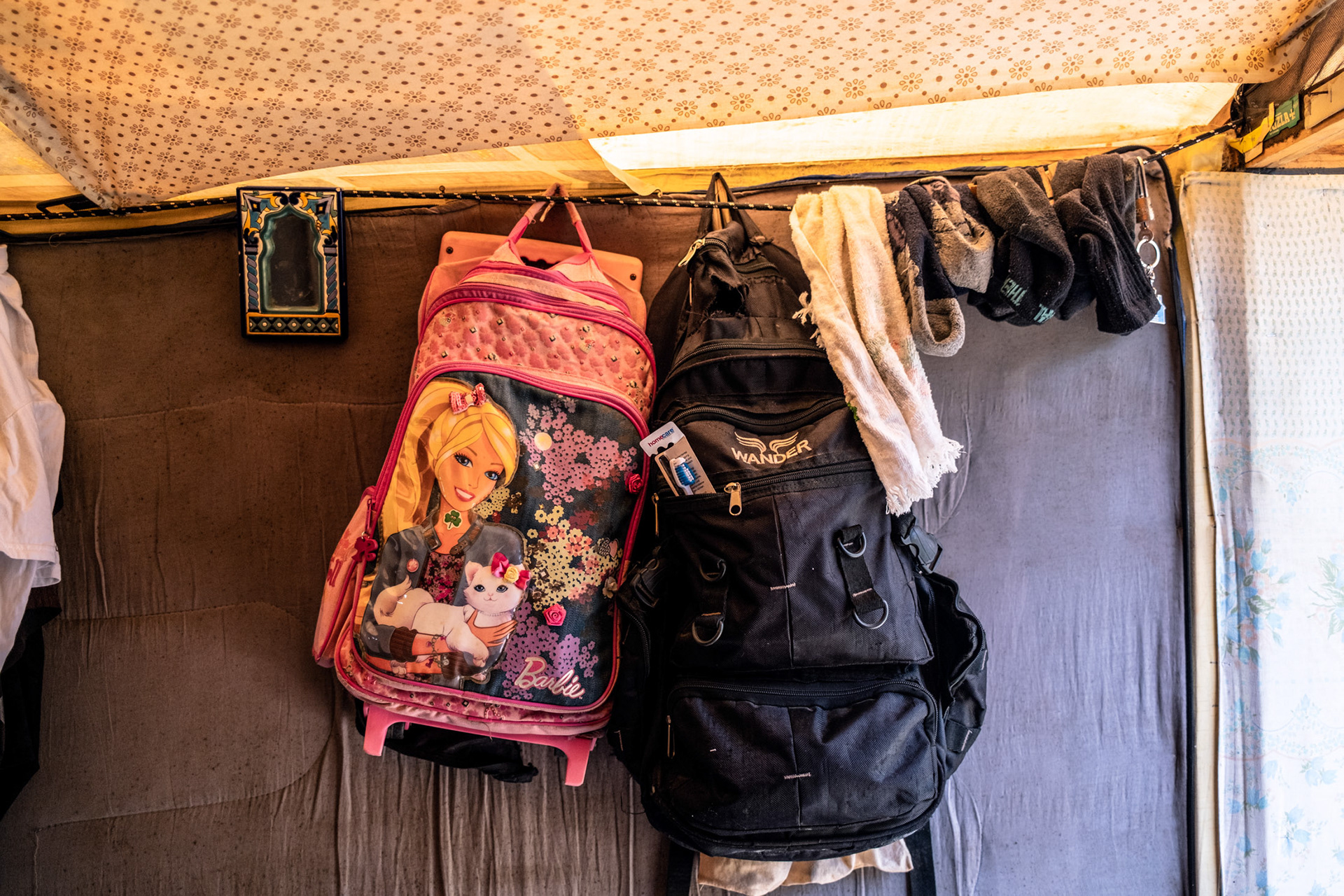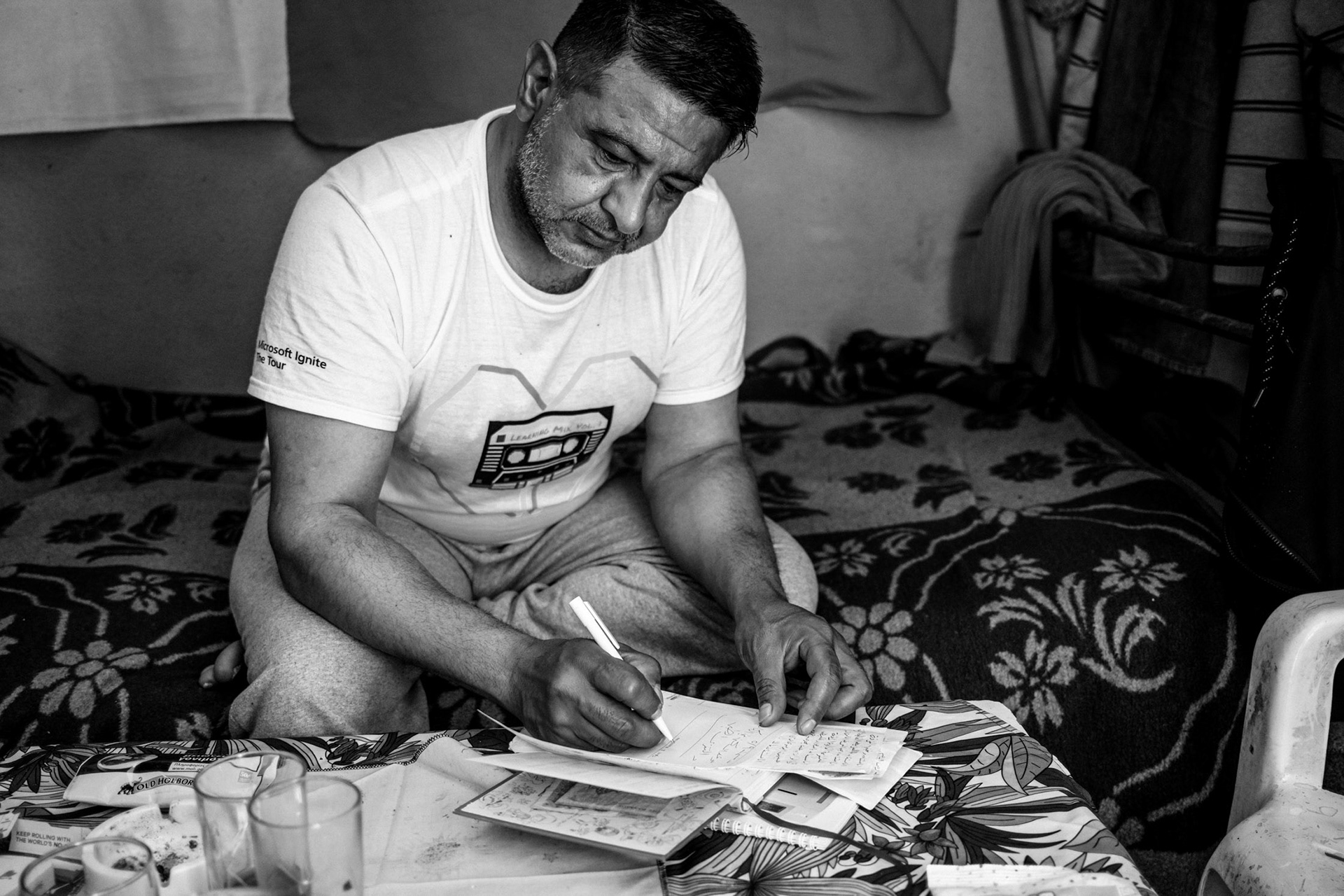Ahmed was born in Raqqa 45 years ago, in a city where the sun used to shine and the lapping of Euphrates’ fresh water sang the hymn of one of the most ancient civilizations.
Somewhere in a memory that lost itself inside Ahmed’s mind, when he was still a kid, while walking down a busy street his curious eyes got caught by a Chef grillardin. The chef, hidden behind a cloud of heat and light smoke, was grilling chicken and lamb skewers with such a passion that Ahmed, couldn’t but fall in love with it.
Suddenly a vision turned into a parasitic idea that grew within him: he wanted to be a chef and be the best at it.
Years went by, and after learning the trade at school, Ahmed decided to go to work abroad. He spent few years in Saudi Arabia and in the United Arab Emirates, enough to strengthen his knowledge and collect money to open his own restaurant in the place that he loved the most: Raqqa.

When I met him I was coming down from one of the various tortuous path that cross the camp like an intricate system of blood vessels. Ahmed was sitting in his small “garden” enjoying the kiss of a cold sun appearing in between a wintery storm. He was singing. His voice was sad.
Later one he told me that at the age of 25 he developed a passion for singing and song writing. “About what?” I asked “Before coming here I used to write songs about love, my wife, my children. But now in Samos, memories hurts more than the rat bites. Now I write about what I see here”.
Later one he told me that at the age of 25 he developed a passion for singing and song writing. “About what?” I asked “Before coming here I used to write songs about love, my wife, my children. But now in Samos, memories hurts more than the rat bites. Now I write about what I see here”.
Then one day in 2011, a rain of lead started to burn holes in his soul. In Raqqa the sun got covered by the dark clouds of exploding bombs, and the Euphrates’ was left speechless by the shattering scream of gunfire. In 2011 the war happened.
“Every day was the same story: you didn’t know where the bomb would drop, if on your left, on your right, on your neighbor or you…” “Being alive wasn’t a matter of luck or faith, it was just how lower down you were in the ‘where to drop the bomb’ list.”
What I understood from his story, is that death in war is something that you just wait for it to happen. It’s like when you see yourself tripping into something: you saw that happening from afar, and the only thing you could do is waiting for it to happen: it’s like seeing yourself hitting the ground by staring down a seer’s soul.
What I understood from his story, is that death in war is something that you just wait for it to happen. It’s like when you see yourself tripping into something: you saw that happening from afar, and the only thing you could do is waiting for it to happen: it’s like seeing yourself hitting the ground by staring down a seer’s soul.



Ahmed didn’t watch through the eyes of the jetfighter pilot that choose to drop a bomb over his house and restaurant, but watched the stark shrill grin of despair left by the explosion. The chaos left behind didn’t just erase what he built, but all the future hopes that he put in his son. “No father should burry his son”.
I know it’s a well known phrase, but you never get accustomed to it.
I know it’s a well known phrase, but you never get accustomed to it.
Now he is in the refugee camp on Samos, and since 1 years and half he keeps dreaming and planning a new future, so when that day will come, he will be prepared to build his life back together with his wife.


